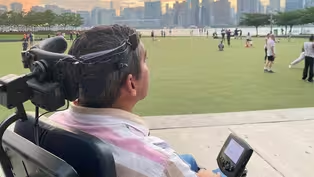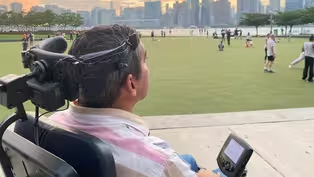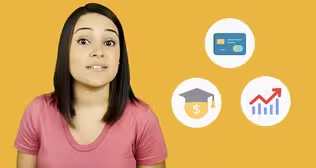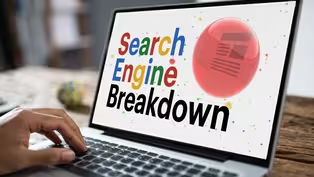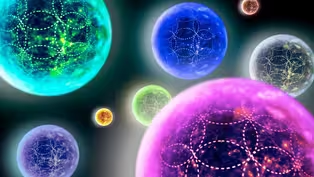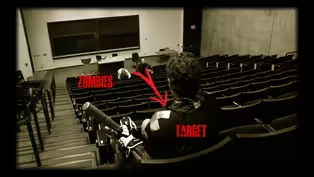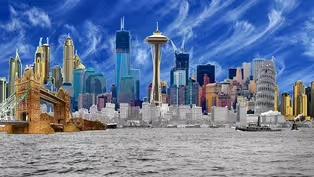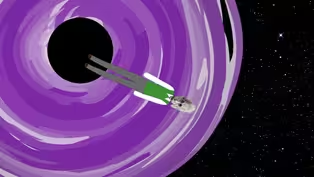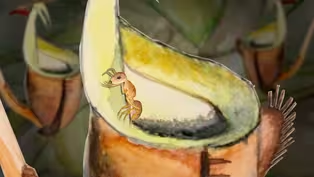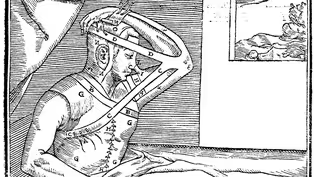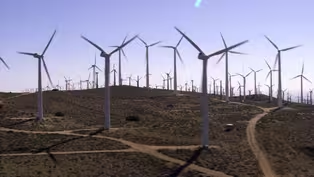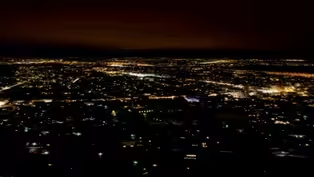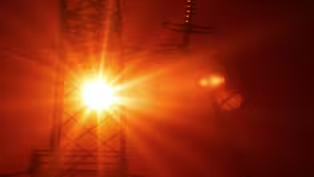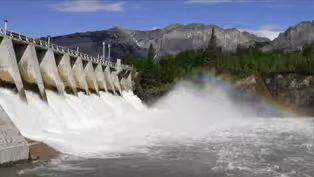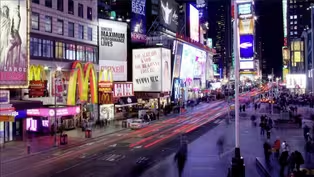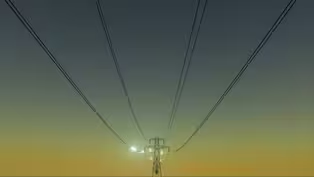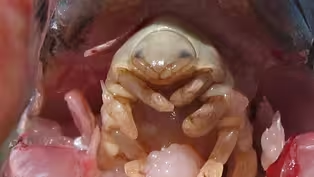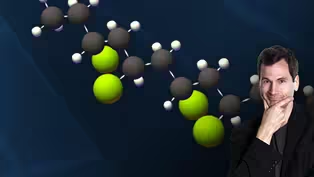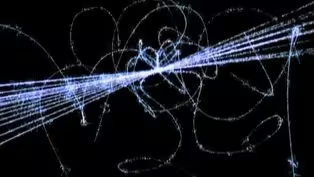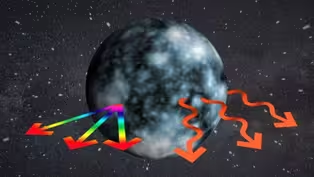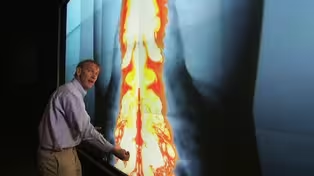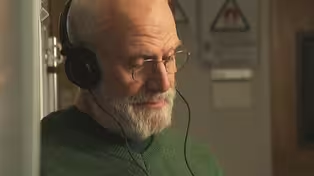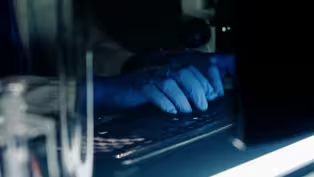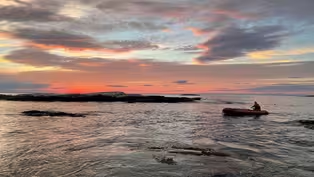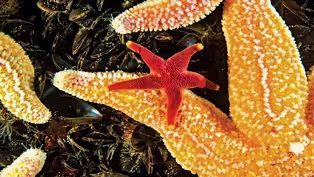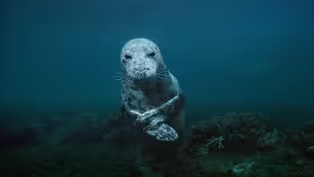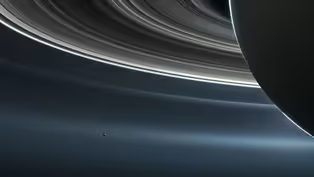Do We Live in a Multiverse?
Clip | 5m 2sVideo has Closed Captions
Could parallel universes exist? If so, what would they look like and how would they form?
Could parallel universes exist? If so, what would they look like and how would they form?
Problems playing video? | Closed Captioning Feedback
Problems playing video? | Closed Captioning Feedback
National Corporate funding for NOVA is provided by Carlisle Companies and Viking Cruises. Major funding for NOVA is provided by the NOVA Science Trust and PBS viewers.
Do We Live in a Multiverse?
Clip | 5m 2sVideo has Closed Captions
Could parallel universes exist? If so, what would they look like and how would they form?
Problems playing video? | Closed Captioning Feedback
How to Watch
is available to stream on pbs.org and the free PBS App, available on iPhone, Apple TV, Android TV, Android smartphones, Amazon Fire TV, Amazon Fire Tablet, Roku, Samsung Smart TV, and Vizio.
Buy Now
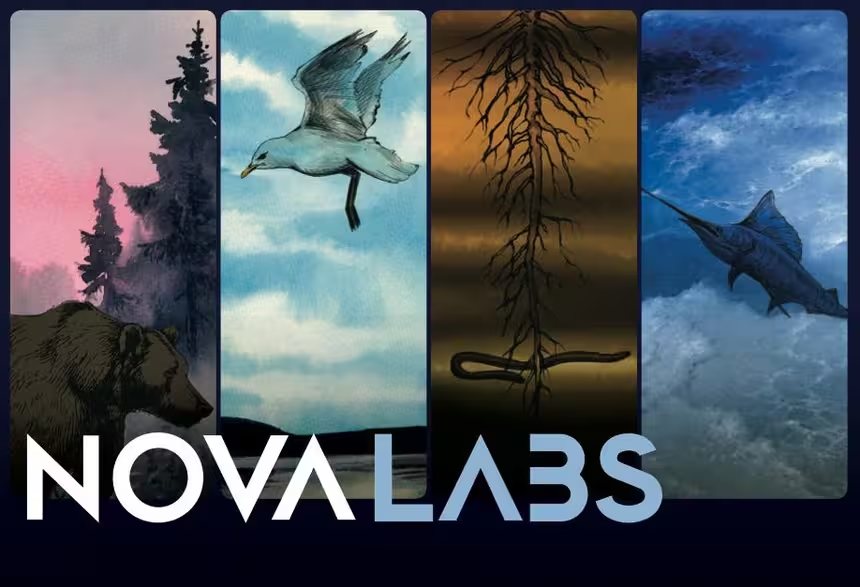
NOVA Labs
NOVA Labs is a free digital platform that engages teens and lifelong learners in games and interactives that foster authentic scientific exploration. Participants take part in real-world investigations by visualizing, analyzing, and playing with the same data that scientists use.Providing Support for PBS.org
Learn Moreabout PBS online sponsorshipVideo has Closed Captions
Preview | 38s | A filmmaker with a rare type of multiple sclerosis explores the mysterious causes of MS. (38s)
Video has Audio Description
Clip | 30m 37s | A filmmaker with a rare type of multiple sclerosis explores the mysterious causes of MS. (30m 37s)
Introducing NOVA's Financial Lab
Video has Closed Captions
Clip | 1m 22s | Practice making financial decisions – and overcoming common biases – in this fun game. (1m 22s)
Video has Closed Captions
Clip | 20m 37s | Two leading researchers investigate racial bias built into widely used search engines. (20m 37s)
Video has Closed Captions
Clip | 5m 2s | Could parallel universes exist? If so, what would they look like and how would they form? (5m 2s)
Video has Closed Captions
Clip | 6m 50s | You're being chased by zombies, and understanding tangent vectors may save your life. (6m 50s)
Video has Closed Captions
Clip | 3m 23s | Urban archaeologists dig for stories beneath city streets. (3m 23s)
Video has Closed Captions
Clip | 5m 40s | Three physicists untie a 150-year-old tangle of a puzzle. (5m 40s)
2.5 Ways to Die in a Black Hole
Video has Closed Captions
Clip | 7m 12s | The answer to how you would die in a black hole could revolutionize the laws of nature. (7m 12s)
Carnivorous Plants and Killer Ants
Video has Closed Captions
Clip | 3m 3s | Ant eats plant's parasites. Plant eats ant's poop. It's the circle of life. (3m 3s)
Video has Closed Captions
Clip | 2m 19s | Thinking about getting a nose job? Thank goodness it's not the 16th century. (2m 19s)
Video has Closed Captions
Clip | 2m 33s | Modern wind turbines capture energy from the wind and convert it into electricity. (2m 33s)
Video has Closed Captions
Clip | 2m 56s | What can be done to make the power grid more reliable and efficient? (2m 56s)
Video has Closed Captions
Clip | 3m | How can we convert the Sun’s light and heat into energy we can use? (3m)
Video has Closed Captions
Clip | 2m 44s | What makes an energy source renewable and how can we use them to power our societies? (2m 44s)
Growing Appetites, Limited Resources
Video has Closed Captions
Clip | 2m 21s | The need for alternative energy sources is more pressing than ever. (2m 21s)
Video has Closed Captions
Clip | 2m 41s | What is energy and why are we on a never ending search for new energy sources? (2m 41s)
Video has Closed Captions
Clip | 2m 34s | Gross science: This parasite crawls into a fish’s mouth and replaces its tongue. (2m 34s)
Video has Closed Captions
Clip | 4m 33s | Explore an interactive periodic table, play an elemental game, and watch the NOVA program. (4m 33s)
Video has Closed Captions
Clip | 4m 46s | Learn how Peter Higgs' ideas about matter transformed our understanding of space. (4m 46s)
Video has Closed Captions
Clip | 4m 6s | Learn how to find signs of extraterrestrial life in our galaxy without leaving home. (4m 6s)
Video has Closed Captions
Clip | 3m 20s | See why an explosion three miles above Earth would act like a hot tornado on the surface. (3m 20s)
Video has Closed Captions
Clip | 4m 5s | See neuroscientist Oliver Sacks's brain respond differently to music by Bach & Beethoven. (4m 5s)
How Algorithms Decide Who Gets a Kidney
Video has Closed Captions
Clip: Special | 1m 7s | Clinical algorithms are meant to guide doctors toward better care – but do they? (1m 7s)
Sea Change: Survival in the Gulf of Maine Preview
Video has Closed Captions
Preview: Special | 30s | Meet the people leading new efforts to shape the future of the Gulf of Maine and our oceans. (30s)
Sea Change: Peril in the Gulf of Maine Preview
Video has Closed Captions
Preview: Special | 30s | Explore Cashes Ledge - part of the Gulf of Maine that helps power the Gulf’s more than 3,000 species (30s)
Sea Change: Bounty in the Gulf of Maine Preview
Video has Closed Captions
Preview: Special | 30s | Discover the lasting impact of how international trade forever changed the Gulf of Maine’s bounty. (30s)
Clip: Special | 2m 39s | Out near Saturn, the spacecraft Cassini has just entered its final and riskiest chapter. (2m 39s)
Providing Support for PBS.org
Learn Moreabout PBS online sponsorship
- Science and Nature

Capturing the splendor of the natural world, from the African plains to the Antarctic ice.













Support for PBS provided by:
National Corporate funding for NOVA is provided by Carlisle Companies and Viking Cruises. Major funding for NOVA is provided by the NOVA Science Trust and PBS viewers.


